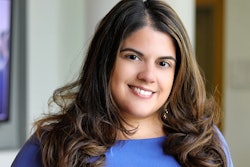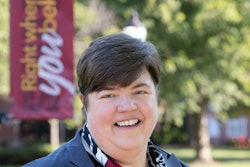Three months after she was chosen to head the committee on race in response to the university’s lacrosse scandal, Duke University Professor Karla Holloway threatened to quit yesterday citing exhaustion.
“I’m working on a culture initiative when I should be doing research,” says Holloway. “Of course you want a chance to make your campus better, but at what cost? When you are serviced to fix the problem and you are also the victim; it’s a double duty.”
By the end of Monday, Holloway had met with colleagues and reluctantly decided to stay on as committee head. But her frustration raises questions as to whether there is too much pressure on Black faculty at Duke to respond to the March crisis, in which a Black exotic dancer accused members of Duke’s lacrosse team of rape and racial slurs — prompting nationwide accusations of racism against the university.
“It’s true,” says Duke provost Peter Lange about the burden placed on Black faculty. “If you have a small number of African-American faculty, and a crisis emerges of the kind that emerged here in March in which African-American students seek support from African-American faculty members, and in addition the institution needs input from African-American faculty, then the burden on them shoots way up.”
Since the March incident, six Black faculty members have departed the university, most notably Dr. Charlotte Pierce-Baker, a professor of women’s studies, and her husband Dr. Houston Baker, a professor of African-American literature. Both left for Vanderbilt University.
All six professors say they left for personal reasons, and many had already made plans to leave before the March incident. However, the timing has led some to question whether an exodus is afoot.
“If these people start to leave, it creates all kinds of concerns for those of us who are left,” Dr. Kerry Haynie, a professor of political science who was recruited to Duke from Rutgers University in 2003, told The News & Observer last week. This year, Haynie has served on seven committees, including one on the culture of the lacrosse program.
Lange says the departures were “not good and we don’t want it repeated.” However, he says the university has hired an additional 10 Black professors, half of whom signed on after March, and three of whom are “senior scholars that work on race.”
Spending on retention efforts of Black faculty has more than doubled from $700,000 in 2003 to $1.6 million today, he adds.
Nonetheless, the loss of six Black professors is particularly painful given that the university recently finished an extremely successful decade-long initiative to build up its Black faculty. From 1993 to 2003, the university doubled its Black staff to 88 by offering financial incentives and generous research opportunities.
However, when the race initiative ended in 2003, it was replaced by a “diversity” initiative, says Holloway; and that was when Blacks “fell off the radar”.
Duke administrators disagree. They called the switch in language from race to diversity an “expansion.”
“I don’t like to make contrasts between race and diversity as if it’s a trade off. It’s an expansion,” Lange says. “To have a truly diverse faculty across Duke, we had to recognize that there’s a number of groups under-represented, and that reflects a weakness in our educational programs. We view diversity as important and we need to capture that diversity; but not at the expense of African-American hiring, which we continue to think of as a moral priority.”
In response to the charges associated with the lacrosse case, the university formed four committees — race, gender, alcohol and athletics — which meet weekly and report to Duke President Richard Brodhead. The committees will continue to meet throughout the summer.
Holloway says she decided to stay on the committee after she was convinced that it would have more of a voice with her participation. She says she has seen improvement at Duke. For example, she says her students have shown steady improvement dealing with racial issues.
However, Holloway says her patience is being tried. She says one of her goals on the committee was to create mechanisms within the university to deal with racial slurs and also to get the university leadership to set the standard of cultural respect on campus.
“I hope we give more rigorous and robust attention to issues of race on campus, so we’re not always dealing with a negative but also a positive.”
— Christina Asquith
© Copyright 2005 by DiverseEducation.com















